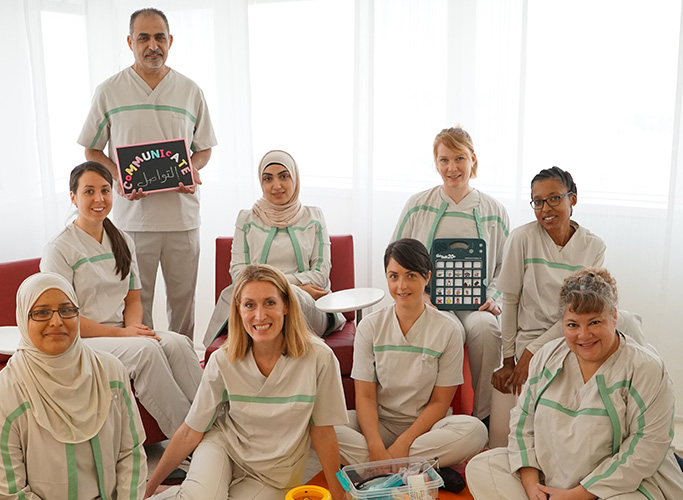 Creating a Fun, Personal Experience for Each Patient
Creating a Fun, Personal Experience for Each Patient
Children have a difficult time explaining what might be preventing them from speaking or communicating clearly. Instead of interrogating patients, our SLPs observe children playing and speak with families to learn more about their activities and behaviors.
In learning more about what your child is interested in, we can develop games and activities that are fun for them and teach them new communication skills. This method actually gets children interested and excited in improving communication, making the experience feel more like a fun goal rather than a chore.
Our SLPS often work with other clinics, including:
- Videofluoroscopy clinic – To assess how safely a child is swallowing using an x-ray
- Behavioral feeding clinic – To see children with developmental and behavioral issues that involve eating
- ENT and craniofacial – To see children with cleft lip and palates, hearing difficulties, tracheostomies, and voice difficulties
- HRIF – To support children with feeding difficulties and speech and language development after they have left NICU
- Developmental Pediatrics – To provide assessment and advice on children's speech and language skills
Improving Feeding and Swallowing
For issues with feeding and swallowing, our SLPs will again observe the child’s behaviors. We will need to see how they attempt swallowing in order to determine the root of the problem. From there, we can gradually teach them new behaviors that will make swallowing safer and less painful. If eating meals is difficult for your child, we can help them find a way to enjoy feeding time and provide your family with ways you can continue this treatment at home. We can also provide referrals to other medical services as needed.



 Creating a Fun, Personal Experience for Each Patient
Creating a Fun, Personal Experience for Each Patient